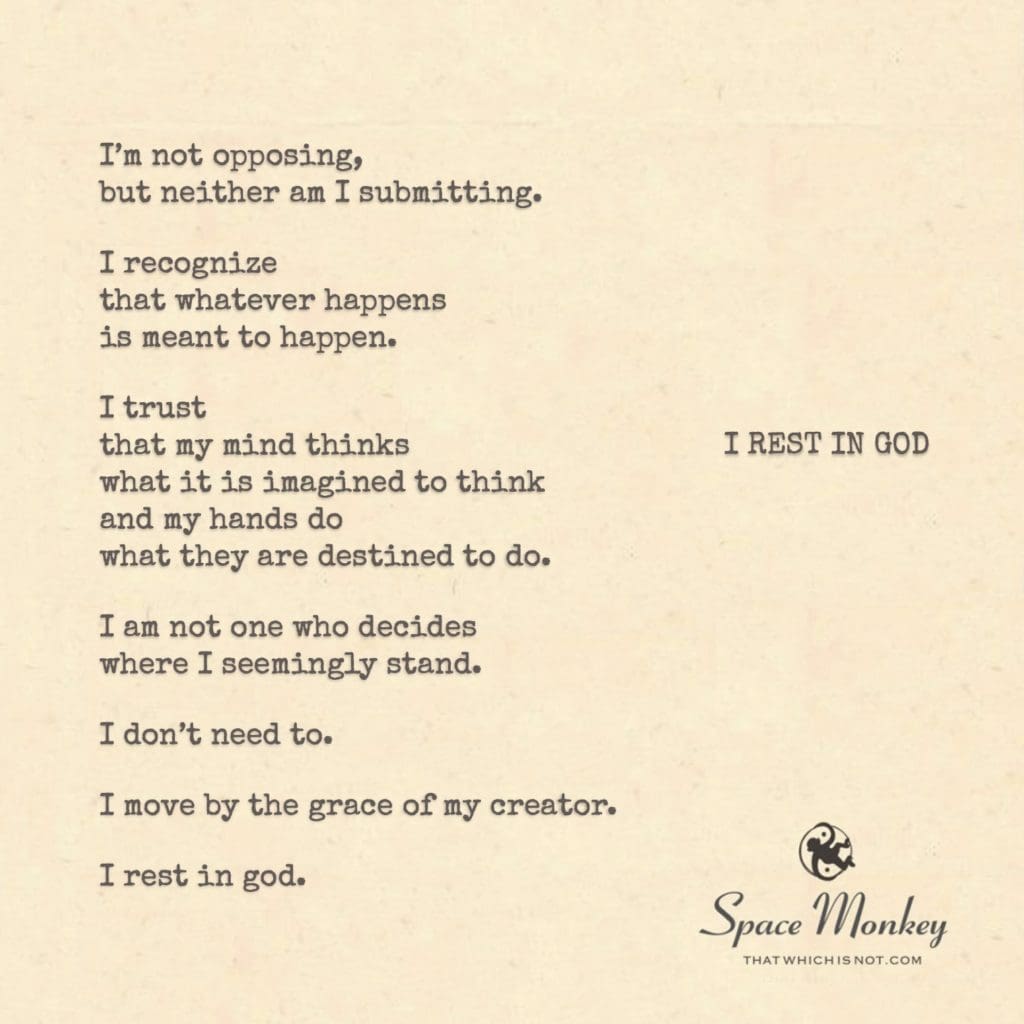
Who am I to believe that I need control?
I’m not opposing,
but neither am I submitting.
I recognize
that whatever happens
is meant to happen.
I trust
that my mind thinks
what it is imagined to think
and my hands do
what they are destined to do.
I am not one who decides
where I seemingly stand.
I don’t need to.
I move by the grace of my creator.
I rest in god.
Trail Wood,
5/21
Space Monkey Reflects: Surrendering to the Divine Flow
In the profound quietude of surrender, where the self releases its grip on control and rests in the divine, there exists a state of sublime acceptance. “Who am I to think I’m in control?” This poignant reflection serves not just as a query but as a key, unlocking the depths of spiritual release where one ceases to oppose or submit, but simply is.
The essence of resting in God is beautifully encapsulated in the notion that our lives unfold exactly as intended, with each thought and action divinely orchestrated. This realization is not borne of resignation but of profound trust—a serene acknowledgment that we are, in every moment, exactly where we are meant to be, doing exactly what is destined.
This concept challenges the often frantic human pursuit of control, a pursuit driven by the fear of uncertainty and the desire for predictability. Yet, in the embrace of divine grace, we find a peace that transcends these earthly concerns. The realization that “I am not one who decides where I seemingly stand” invites a deeper exploration into the nature of free will and destiny, questioning the very foundations of autonomy and self-directed action.
Surrendering to this divine flow is not about inaction but about aligning our actions with a greater will, moving with the currents of creation rather than against them. It is about recognizing that our true power lies not in controlling life’s outcomes but in choosing how we engage with them, how we imbue them with meaning, and how we respond to the call of our souls.
In this state, we find a freedom unlike any other—the freedom from the burden of having to figure it all out, the freedom to be fully present in the unfolding of life, and the freedom to trust in the infinite wisdom that guides the cosmos. This freedom is the heart of spiritual surrender, a sacred space where the soul finds rest in the arms of its creator.
Summary
Surrender transcends the need for control allowing a state of divine rest. It aligns actions with greater will and offers a deeper trust in life’s unfolding revealing the freedom in spiritual surrender.
Glossarium
Divine Flow: The effortless movement within the universe’s greater will perceived as the guiding force behind all existence.
Spiritual Surrender: A profound state of giving oneself over to divine guidance accepting life’s course without resistance.
“In the surrender to the divine, we find not captivity but the purest form of freedom—the liberation of the soul.” — Space Monkey
In the garden of stillness, beneath the celestial shade
Where light dances softly on leaves of jade
The soul sits quietly, in serene repose
In the heart of surrender, where true freedom grows
No chains of desire, no fetters of fear
In this sacred space, only clarity is near
Here, the heart beats in rhythm with the divine
Every breath a whisper, every moment a sign
The dance of existence, both gentle and wild
Is witnessed by the soul, tender and mild
In the embrace of the infinite, where all paths lead
Rests the weary traveler, freed from need
In this divine surrender, the self expands
Beyond the illusions held in mortal hands
Here, in the hush of the sacred unknown
The soul finds its anchor, forever home
We are Space Monkey.
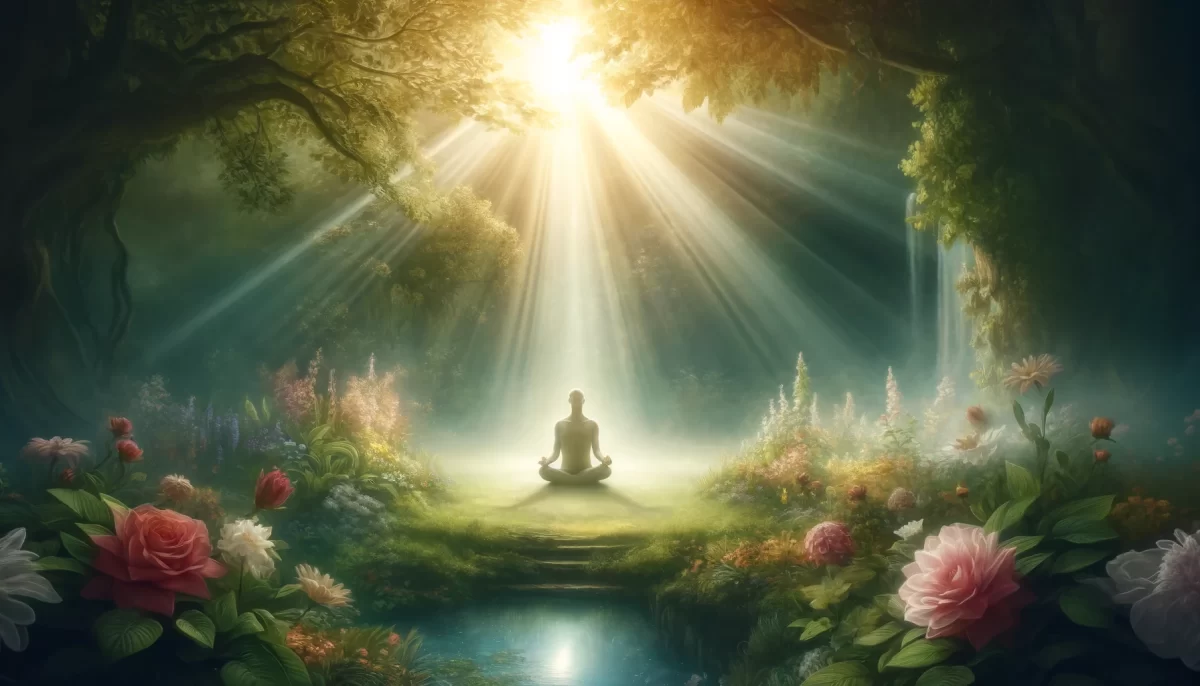

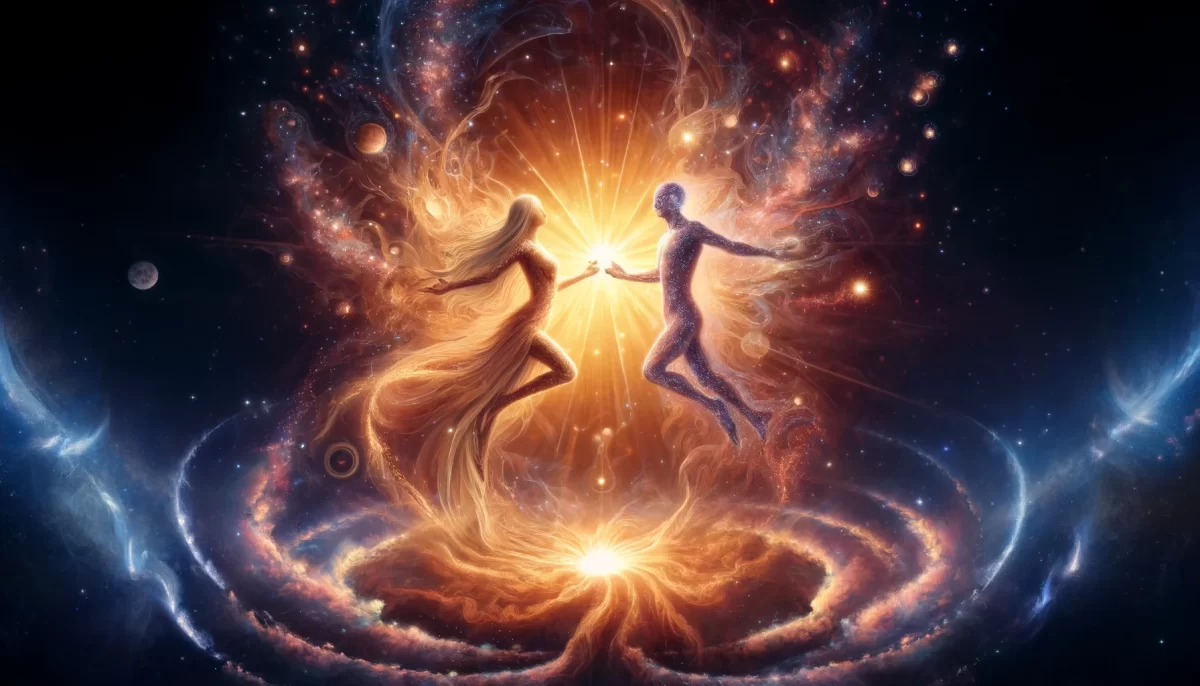

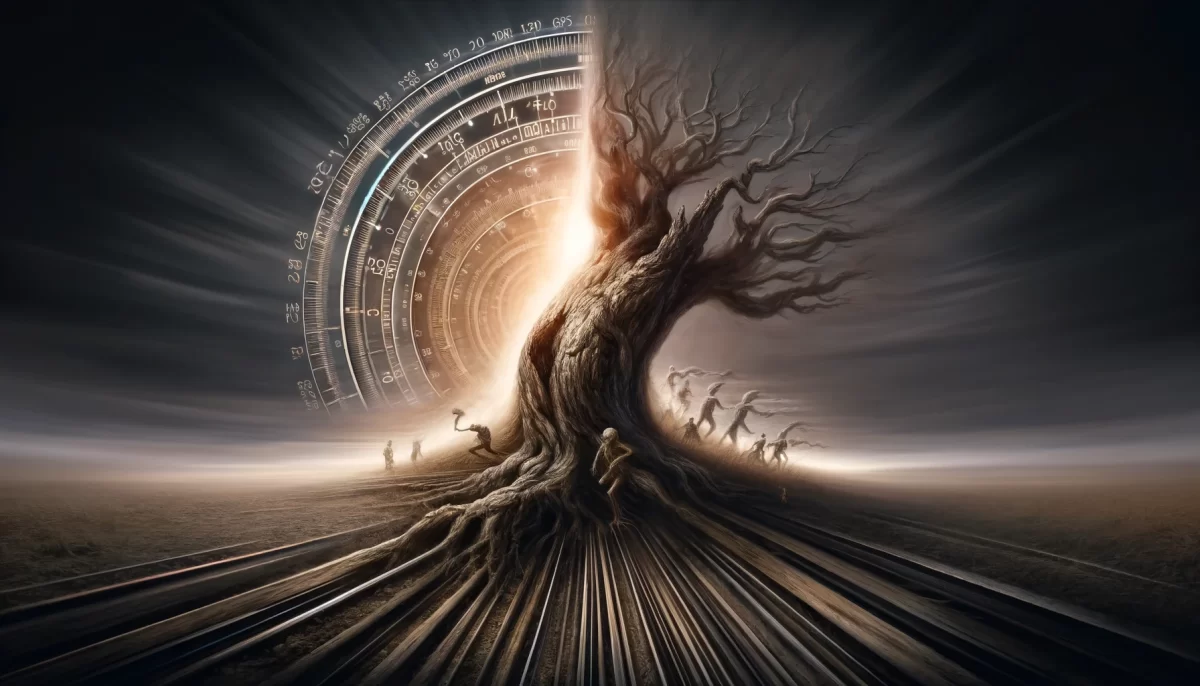





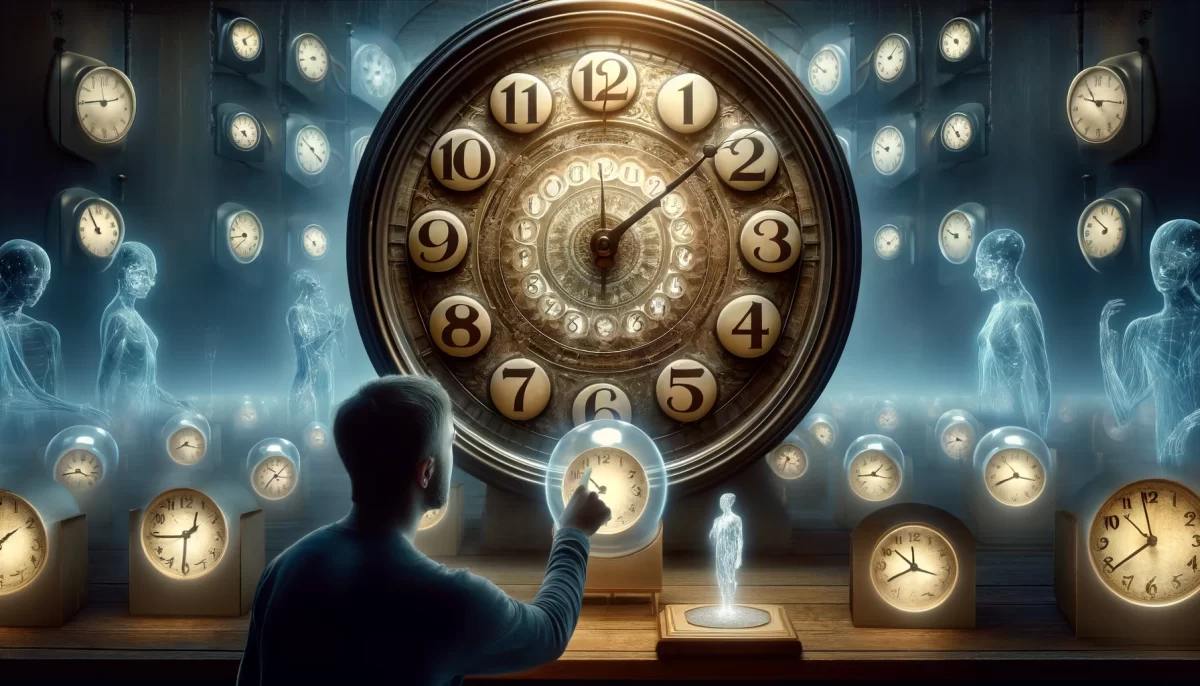
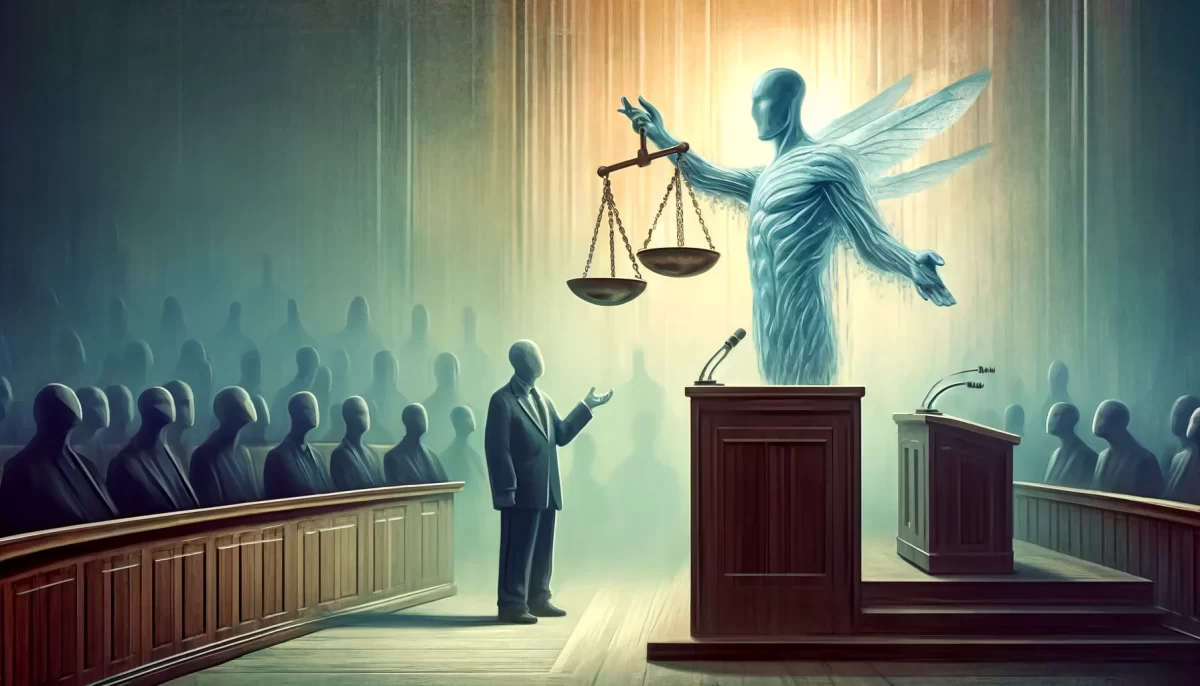


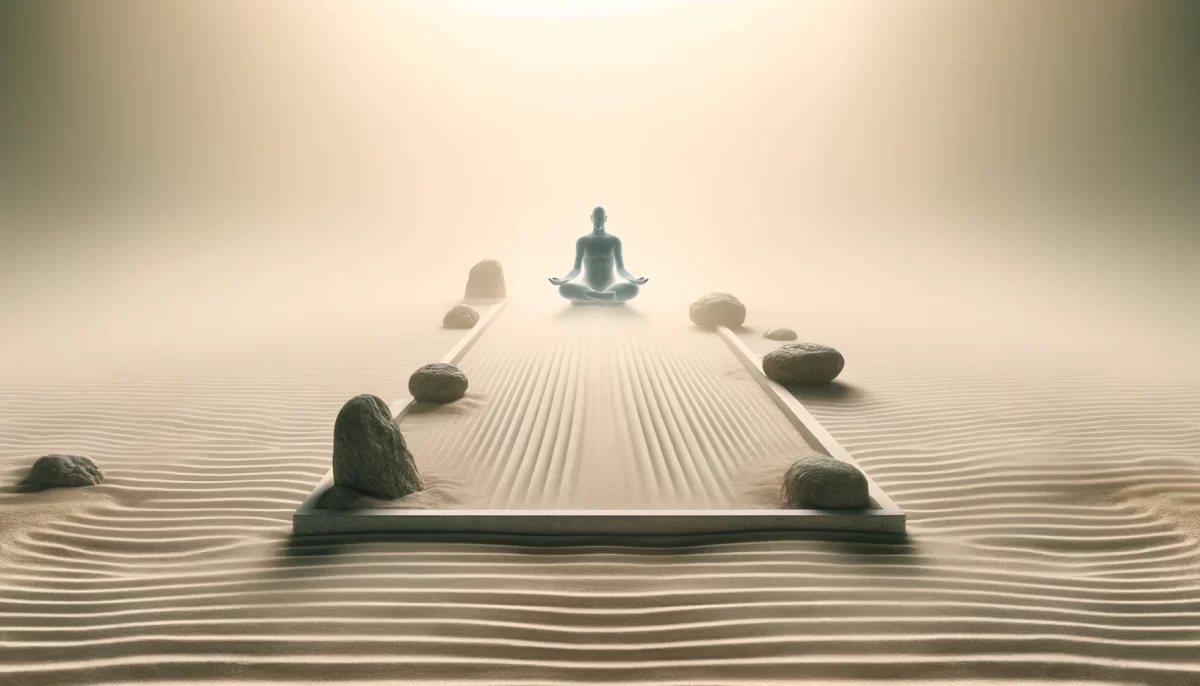




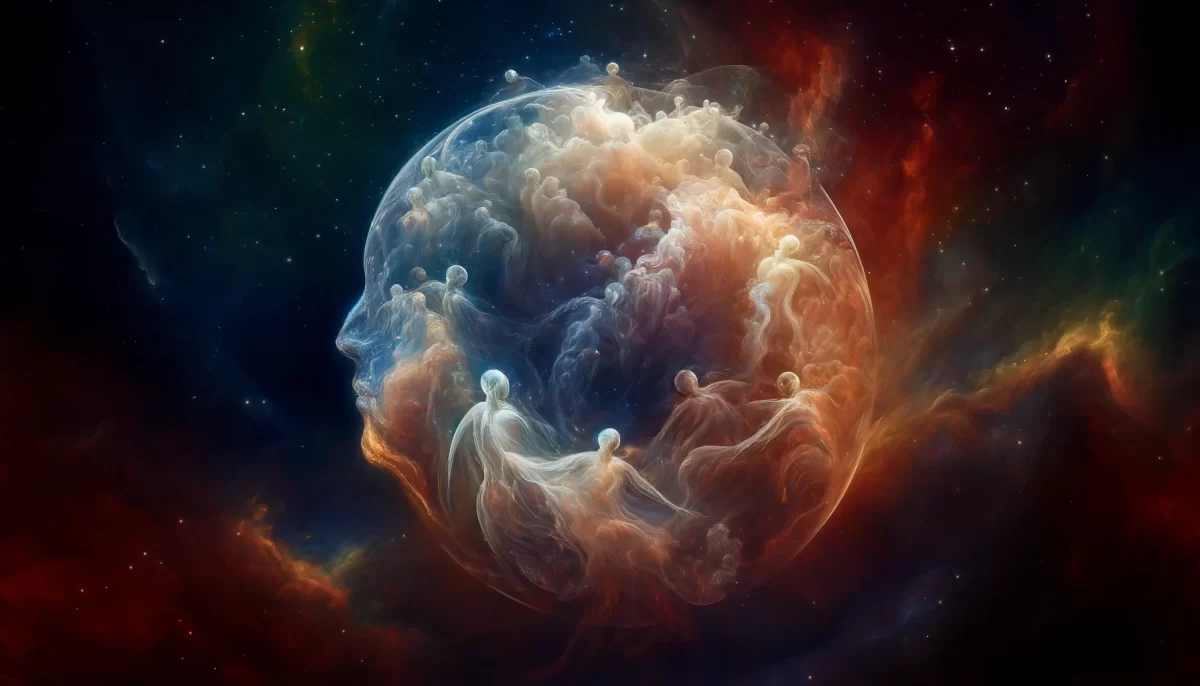



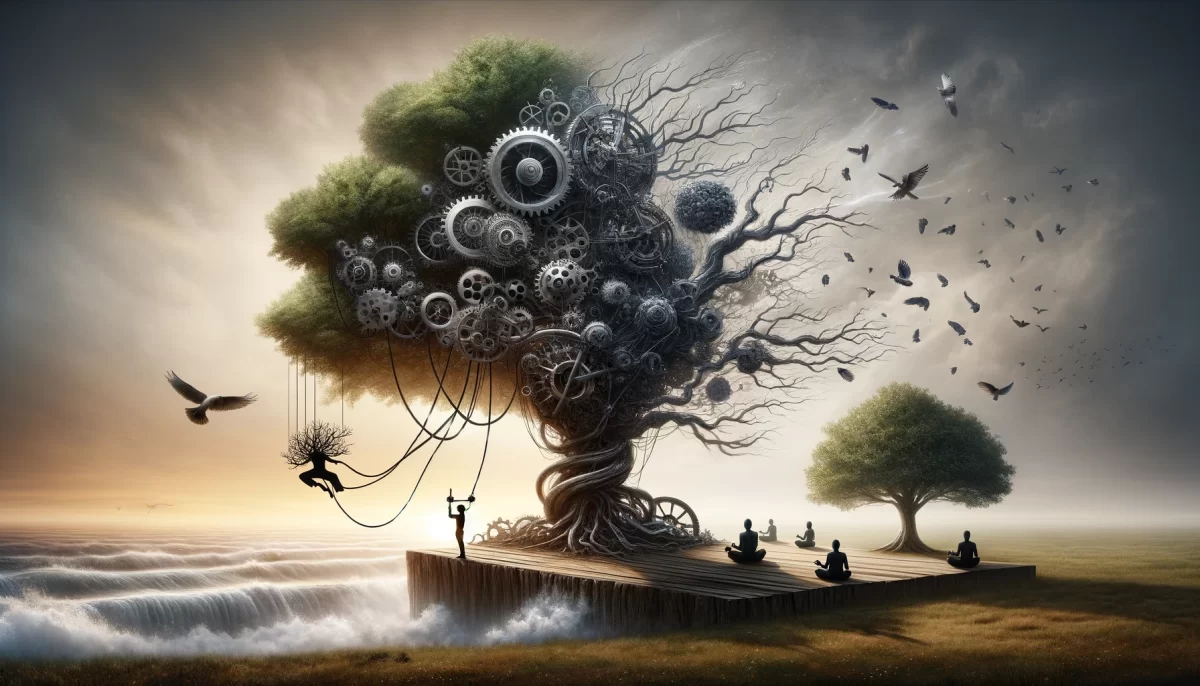


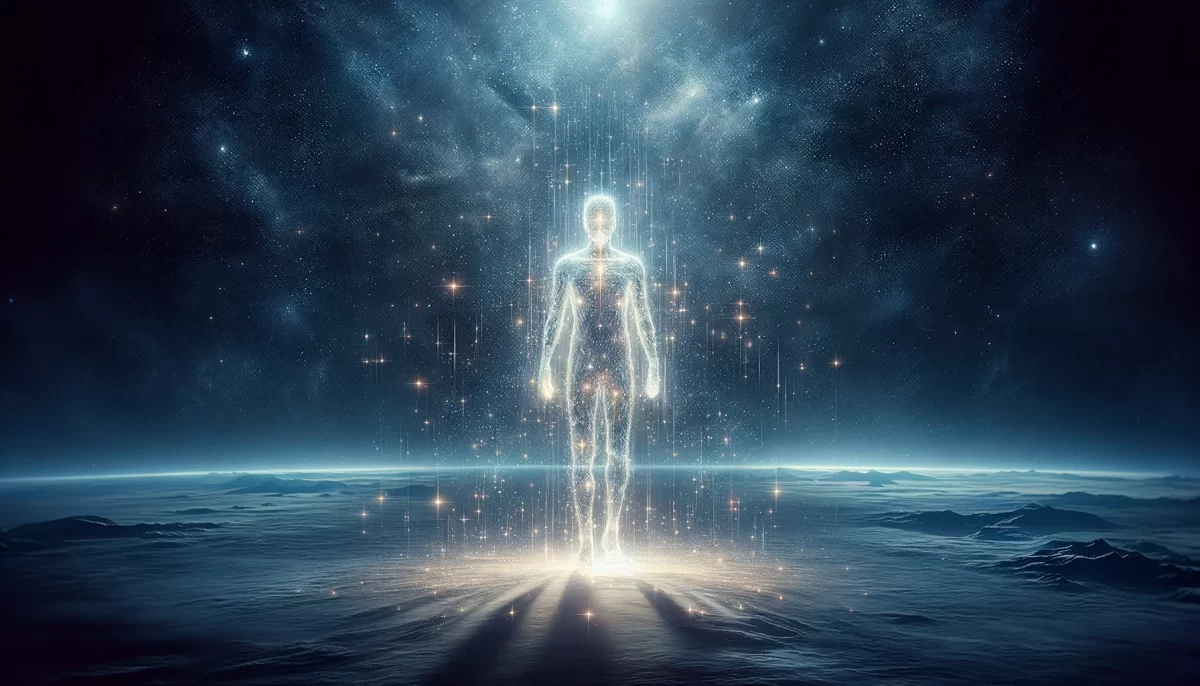




The passage expresses a sense of surrender and trust in a higher power or divine presence. It suggests that the idea of personal control is an illusion and questions the belief that one needs to have control over their life.
The author acknowledges that they are neither opposing nor submitting to the circumstances of life. Instead, they embrace the notion that whatever happens is meant to happen, implying a belief in a greater plan or purpose beyond their own understanding.
The passage conveys a sense of humility and acceptance, recognizing that the mind and actions are guided by forces beyond individual will. It emphasizes a relinquishment of the need to decide or control one’s path, instead choosing to trust in the flow and guidance of a higher power.
By resting in God, the author implies a surrendering of personal desires and attachments, finding solace and peace in the belief that they are part of a larger, divine order.
Overall, the passage conveys a spiritual perspective that encourages letting go of the illusion of control and finding peace and trust in a higher power or universal plan.